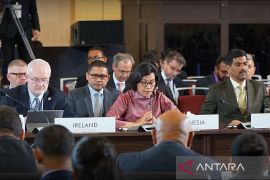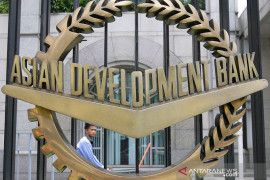"We revised down our projection from 5.5 percent earlier to only 4.9 percent due to global factors and delays in the governments investments this year," ADB Deputy Director for Indonesia Edimon Ginting stated here on Tuesday.
He pointed out that the relatively stagnant household consumption, government infrastructure spending constantly hindered by bureaucratic obstacles, and a decline in exports caused by weak external demand have contributed to the economic slowdown in 2015.
Indonesias economy is forecast to grow better in 2016, reaching 5.4 percent, or lower than the earlier prediction of six percent due to government spending and investment caused by the recent package of the governments economic policies.
"Accelerated deregulation efforts will strengthen infrastructure investment, and exports will recover partly due to devaluation to contribute to the improving economic performance next year," Edimon explained.
He said the government spending could contribute to the economy in 2016 as the government has made efforts to accelerate the absorption of the budget through the simplification of procedures for land procurement and expediting the process of auction of government projects.
Moreover, the initiative to reform policies launched through the recent deregulation policy package and the easing of investment licensing procedures could also boost private investment in several infrastructure projects and accelerate national strategic development projects, he remarked.
"Household consumption is forecast to show continued growth especially due to a hike in the salaries of civil servants and tax reduction for low-income people," he affirmed.
He, however, noted that some risks still loomed large over the prospects of economic growth, including possible continued delays in government investment, slow progress of structural reforms, weak demand in export destination countries, uncertainty in the global financial market, and bad weather caused by the El Nino phenomenon.
"Indonesias economic resilience against market volatility is improving as the value of the exchange rate is more flexible, and bond yields are adjusting better to the market value," he added.(*)
Editor: Heru Purwanto
Copyright © ANTARA 2015











